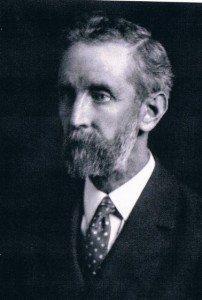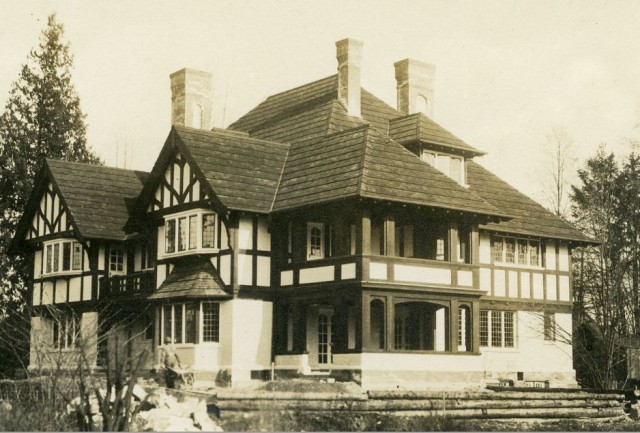I’m a huge fan of Samuel Maclure, a BC-born architect with an incredible design range. Maclure designed almost 500 houses in his 40-year career including the audacious Hatley Castle in Victoria, Gabriola on Davie Street, and Brock House at Jericho Beach.
There are several books about Samuel Maclure, but my favourite is Janet Bingham’s.
It’s been out of print for years so I was delighted to see that she has contributed a section to Thorley Park to Brock House: from family home to heritage landmark 1912-2012, a book that celebrates the house’s 100th anniversary.
The book is filled with archival photos and has undergone some skilful editing by Jo Pleshakov who was also involved in the Story of Dunbar in 2009. But what I enjoyed most was reading the different points of view from family members who either lived there at some point or had some other personal connection to the house.
Richard and Andrew Gilman, descendants of the original owner Philip Gilman kick off the first section. Gilman commissioned Maclure to design his house in 1909, although according to Bingham, he was exceptionally hands on and his attention to detail was “intensive.”
Gilman came to BC to work as an assayer for the government of BC after spending his early school years in Paris, Rome and Madrid, and studying mining and metallurgy at an English university. He became part of a land syndicate and by 1910 had land holdings worth more than $2.5 million, and is said to have told his wife that “only Armageddon could damage our progress at this point.”

Armageddon hit BC in 1913, and like many others Gilman lost his fortune. He managed to hang on to the house until 1922 when it sold to Mildred Brock for $40,000.
Peter Brock takes over the story and tells us that for the next 13 years, Mildred and Reg raised four sons, and entertained a bunch of interesting people including Bertrand Russell, Sir Percy Sykes, Lord and Lady Allenby and Lady Baden-Powell. In 1935, she and Reg died in a plane crash near Whistler.
In the 1930s mansions were not in demand and eventually the Brock’s children sold the house for the fire sale price of $11,000 to mining executive David Tait. Tait’s grandson Robert McConnell takes the story of the house up until 1952, when it became offices for the RCMP and the story is handed over to Staff Sgt. Major Bob Underhill.
By 1971, the RCMP had left the building and it stood empty. Jericho Tennis Club and the Royal Vancouver Yacht Club pooled their resources and offered $300,000, the Vancouver Board of Parks and Recreation offered $1. Neither offer was accepted. As the years passed the house was broken into and vandalized, was turned into a movie set for the National Film Board. It is now a senior’s activity centre.
© All rights reserved. Unless otherwise indicated, all blog content copyright Eve Lazarus.






4 comments on “The Story of Brock House”
Many thanks for this informative post. You’ve captured well the scope of the book.
FYI, the book is available for only $20 from Brock House Society. Here’s a link to more info: http://brockhousesociety.com/category/news/
Here’s the new link. All proceeds go to the Society which is still a thriving seniors activity centre.
http://brockhousesociety.com/content.aspx?page_id=582&club_id=924373
I have enjoyed helping Richard Gilman write his memoirs for seven years up to his demise in January, 2016 at the age of 93. A fine, compassionate and well educated gentlemN who will be long and fondly remembered.
My high school graduation party was held at Brock House in April 1953. I recall this was one of many grad parties at Brock Hall, and it was difficult to get a date to hold it there.